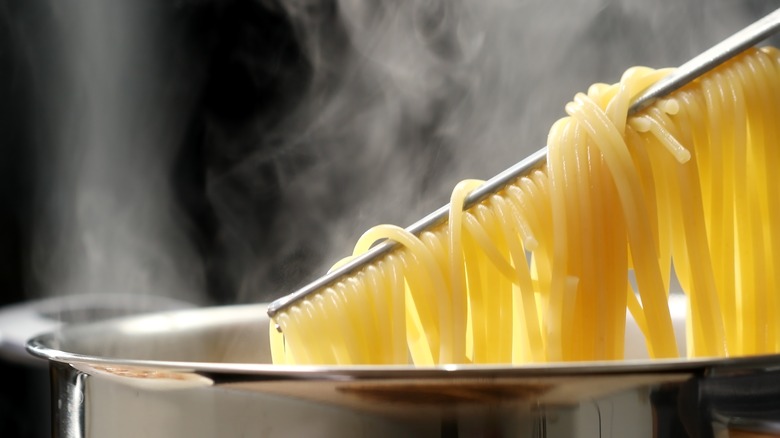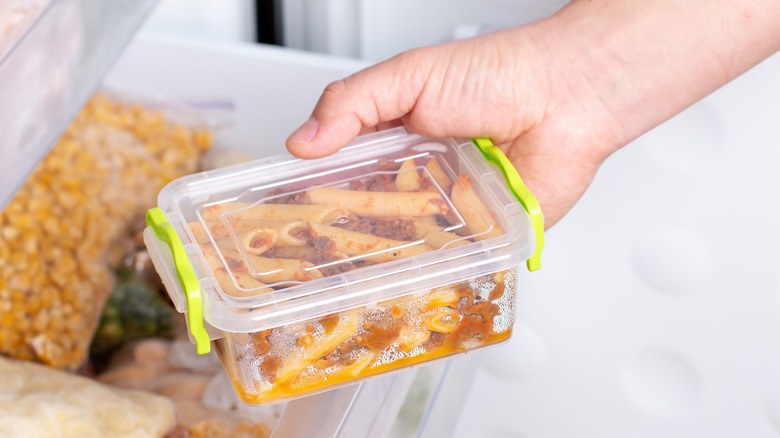How To Store Cooked Pasta To Prevent It From Clumping
No matter how hard you try to prevent it, whenever you cook a batch of pasta, there always seems to be leftovers that need to be stored away for another time. It can make for an easy future meal, but pulling cooked pasta from the fridge only to witness a congealed ball of unappealing cooked dough is the ultimate disappointment when your stomach is calling for it. Preventing it from clumping together when stored is as simple as cooking it al dente and adding a little oil.
Cooking pasta al dente is the key to keeping it from becoming congealed because it gets sticky when overcooked. Once al dente, transfer your noodles to a colander and rinse them in cold water to remove any starch still clinging to them. Work the noodles around so that every individual piece is cooled to ensure the cooking process has stopped. Let the pasta dry, then it's ready for some oil.
If your pasta is already sauced, simply give it a quick stir before refrigerating so the noodles get sufficiently lubricated and won't want to stick together in storage. Unsauced pasta, however, needs some extra-virgin olive oil mixed in so it doesn't clump up as it cools. After lightly oiling the cooked pasta, put it in an airtight container in the fridge. When you're ready to eat it, you'll be welcomed with individual noodles pouring out of the container for your next meal.
Storage best practices
After successfully preventing your pasta from becoming an unmanageable ball, you will want to take some additional precautions to make sure it lasts as long as possible. Firstly, ensure the pasta has cooled completely. If it's still giving off heat when you toss it in the fridge, it is still in the "danger zone" — between 40 and 140 degrees Fahrenheit — which can lead to bacterial growth. Once cooled, put the noodles in an airtight container, and the next time you want to make a pasta salad or a quick spaghetti, half the work is already done.
You can also store cooked pasta in the freezer by using the same methods as with the fridge, though you may want to take some additional steps for convenience later on. An airtight storage container will do the trick, but when freezing noodles, a resealable freezer bag is a better choice because it allows you to push out any air in the container that could affect its quality as it's stored. It's also a good idea to portion out the pasta so you won't have to defrost a family-sized helping if you only want one bowl. Don't forget to label your bag with the date, so you'll have no question about when it was stored.

